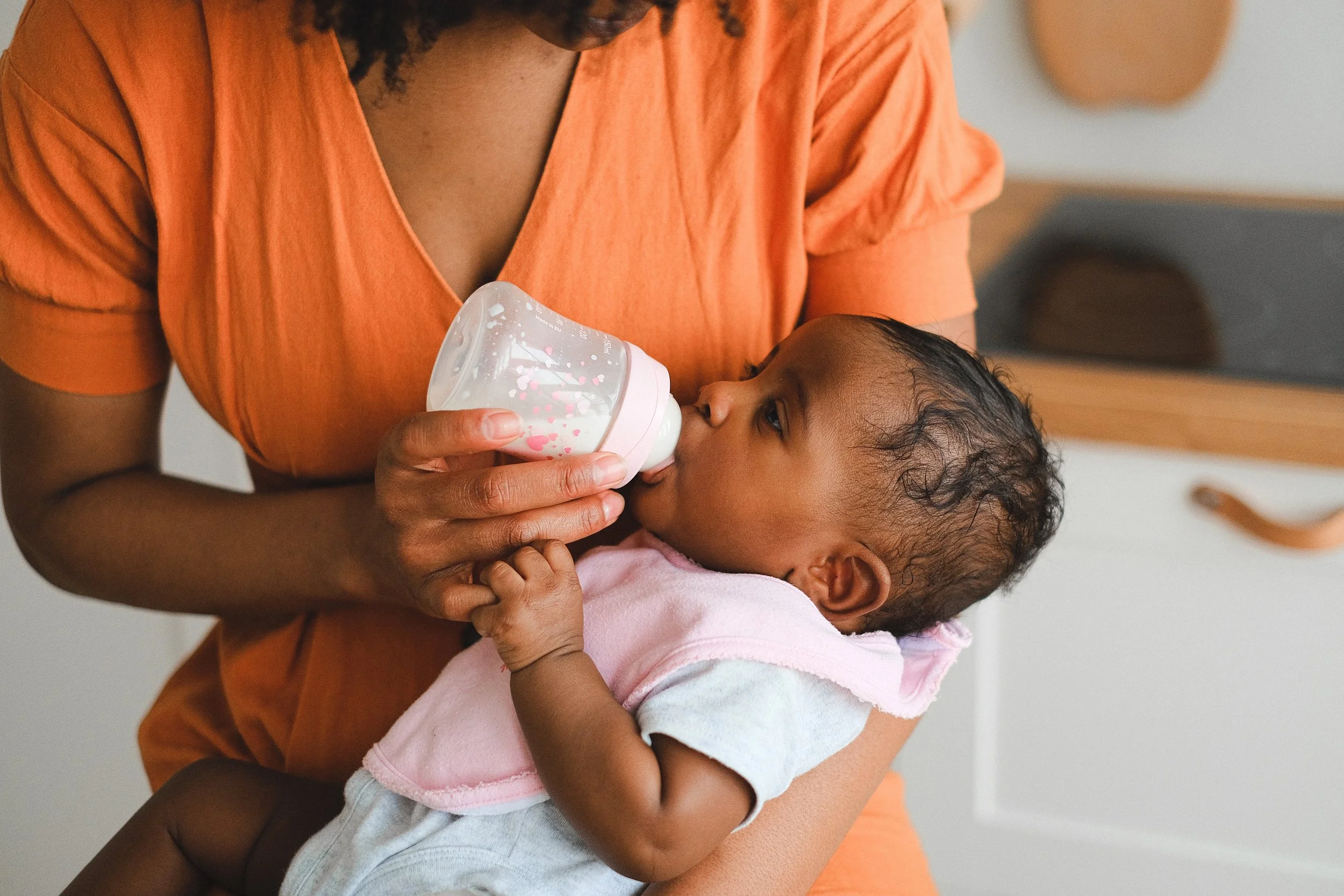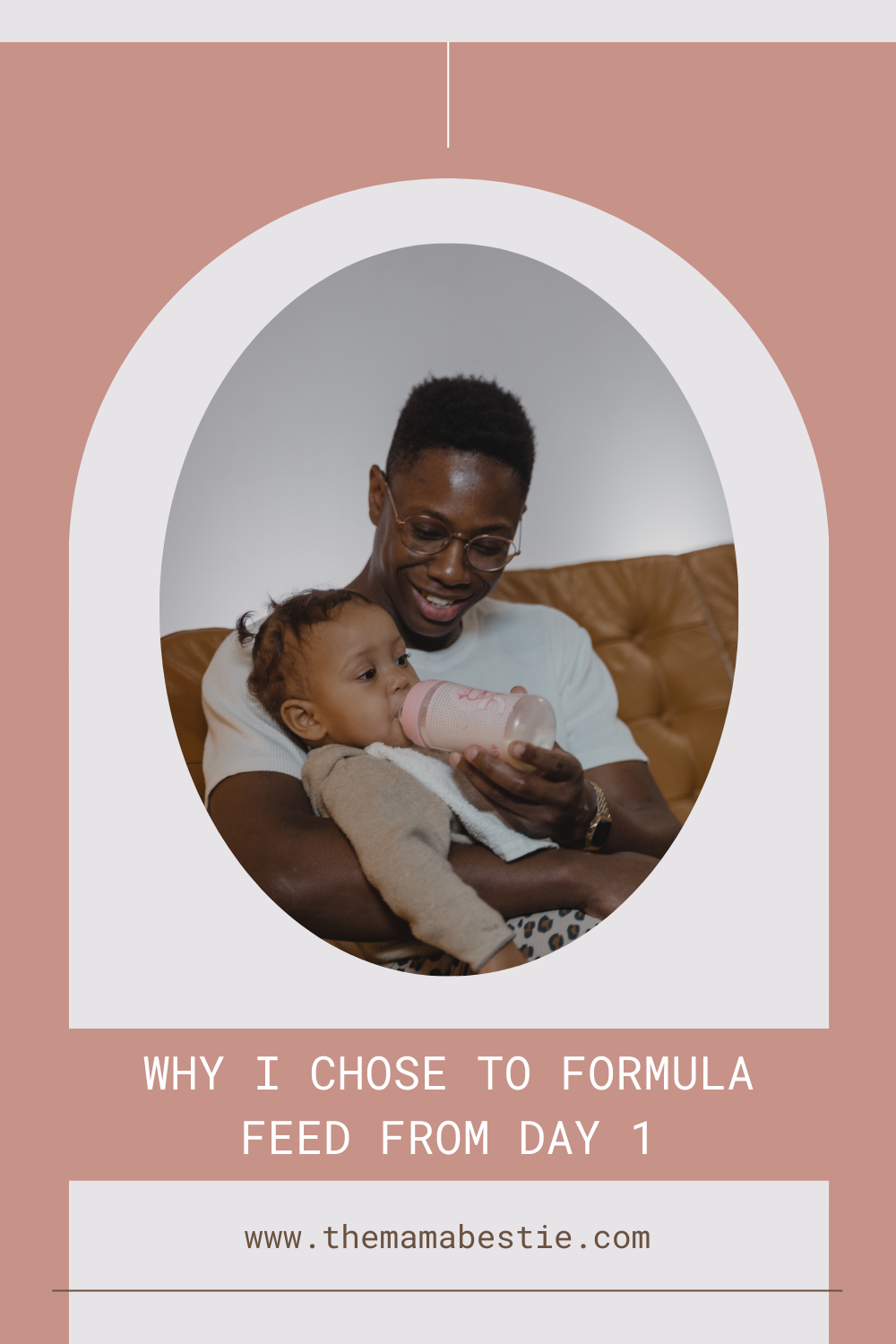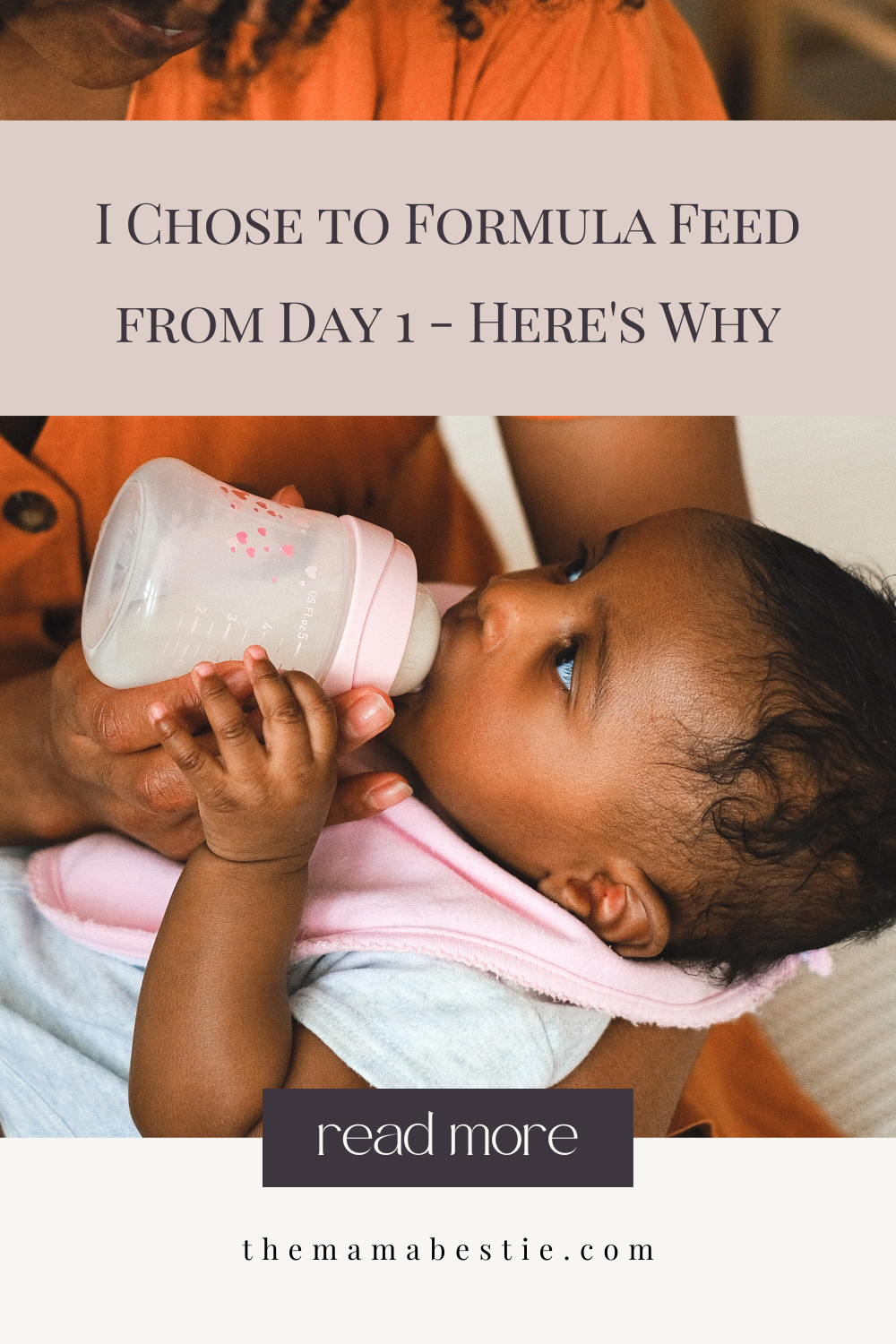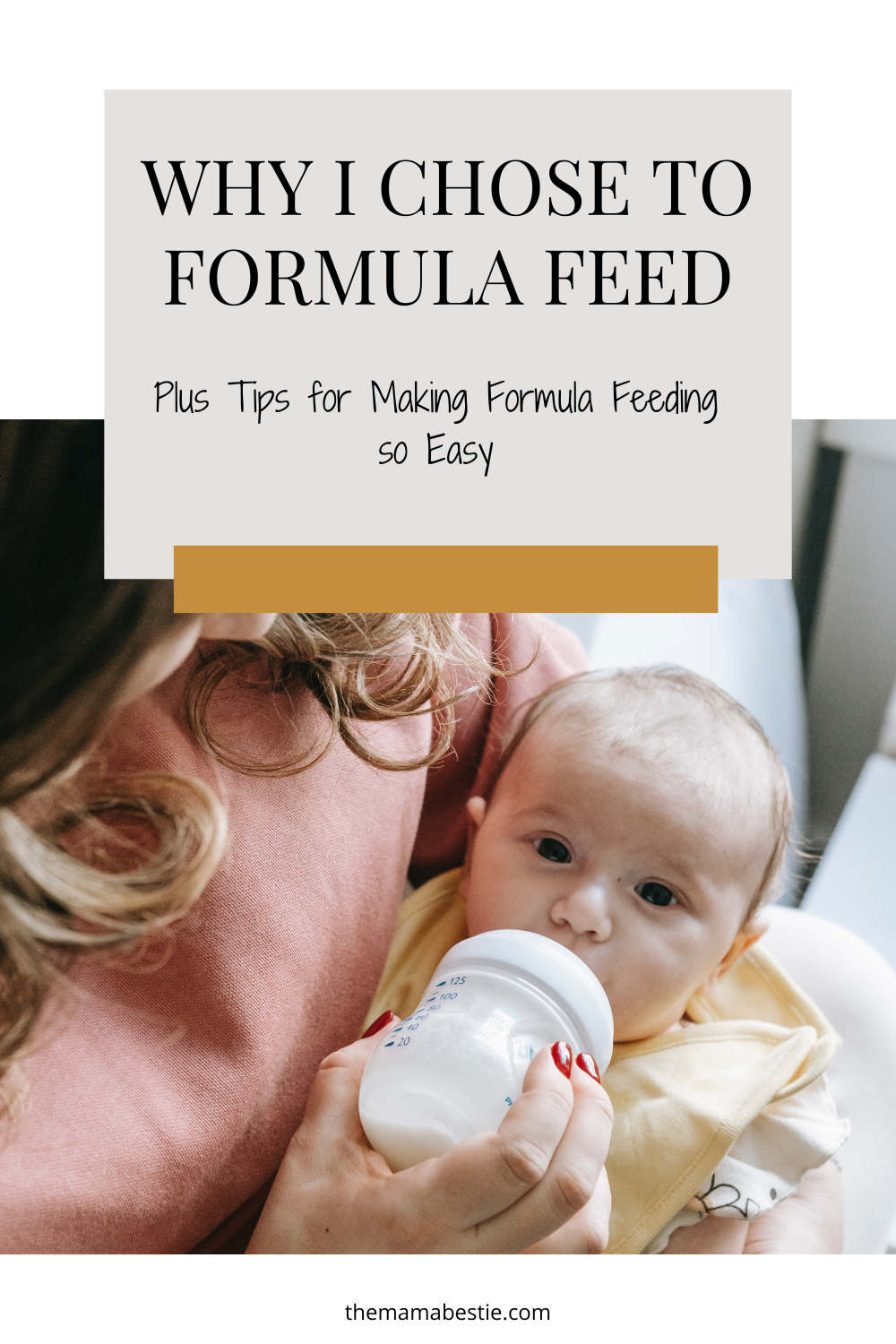Why I Chose to Formula Feed
There are so many decisions to make as a new mom. How you want to feed your baby is one of the first decisions you’ll make. Or if you’re like me, one of the “I’ve thought about this for ages but don’t really know what I want until it’s here” decisions. Ultimately, I chose to formula feed from Day 1. Keep reading to find out why.
Parenting decisions can feel like choosing sides in a political debate. It can feel isolating - like you’re picking a mom group for life, since the mom-world can be so polarized. There can be so much pressure from the “hardliners” to parent a certain way.
But let me take some of that pressure off…
The way you feed your baby does not define you.
It does not define your child.
It does not determine whether you’re a “good mom.”
Save This For Later
We all want what’s best for our children. We want them to grow up loved, fed, and be given the best chance at a good life.
This decision can feel daunting, it’s one of the first things that “define” your parenting style. But know this: Once they reach the picky-eating toddler stage, it won’t matter whether you breastfed or formula fed or combo fed… they’ll be eating pasta and bread exclusively.
Why I Chose Formula Feeding
I was always on the fence about breastfeeding. I’d heard about “breast is best” and I knew the facts about why breastfeeding is amazing and why it’s good for babies. But total transparency: It freaked me out. Breastfeeding is amazing for some and can make them feel so empowered that they are nourishing their baby. But that just wasn’t me.
I didn't know how to express it then, but after 9 months of pregnancy, I wanted my autonomy back. I wanted my body to be mine again and the idea of breastfeeding and literally being my baby’s source of nutrition, just didn’t work for me.
I didn’t decide this until about a week out from having my baby - when I found out my mother-in-law used formula for her babies. I just needed someone, anyone, that I knew to back me in this decision.
Even then I initially decided “we’ll try and see how we go” because that felt more acceptable in my “perfect mother” picture. I nope-d right out of that when it actually came down to it - but my milk never came in either, so it was likely going to be a rough road trying to breastfeed.
I’ll be honest, not everyone has understood my decision. This decision is long past but I was even a little afraid to write this. It’s been said of me (not to my face, of course) that I made a selfish decision. [Turns out, the person that said this wasn’t a mom at the time and when they had a baby, they formula fed too.]
Formula is magic
Formula is truly magic. There are so many reasons that people can’t or don’t breastfeed and formula provides your baby with all the nutrition they need to grow big and strong. Formula was perfect for our family because it meant the overnight wake ups could be shared by my husband (and let me tell you - he did his fair share!) We didn’t have family around to help us and being able to have someone else feed my baby, lifted a weight off my shoulders. Formula meant that I was able to have my body be mine again much sooner. I never once regretted the decision. It was the right one for me.
Let me make this simple for you:
Take the opinions of others out of the equation. If you were making this decision without fear of judgment, what choice would you make?
At the end of the day, this is your decision and it’s your body. You get to decide whether you want to breastfeed or formula feed or combo feed. And know this: whatever you decide, this community will support you.
Remember, mama, you are doing an amazing job. Whether you choose to breastfeed, formula feed, or a combination of both, what matters most is that your baby is happy, healthy, and loved. So take a deep breath, give yourself a little grace, and enjoy this special time with your precious little one.
If you do decide to formula feed, here are some tips to make formula feeding a little easier.
Formula Feeding Tips
When selecting a formula, consult with your pediatrician on the best one for you. Mine said to try “the normal one” and make changes if needed from there, so I got the store brand and never looked back.
Follow the instructions on the container to prepare the formula, using clean, sterilized equipment to avoid contamination. I highly recommend the Baby Brezza Formula Advance + Baby Brezza Sterilizer that dries the bottles - these two items make it all SO EASY.
Newborns typically need to be fed every two to three hours, so be sure to establish a feeding schedule that works for you and your baby. Pay attention to your baby's hunger cues and feed them on demand.
At the start, it’s so hard to tell how much to feed your baby. We started with the “ready to feed” bottles and our midwife gave us the best tip: Don’t feed using the ready to feed bottle. Pour a little bit of formula into a bottle and give that to your baby. Then more if they are still hungry. Here’s why:
The guideline from the CDC is to use prepared formula within 2 hours of preparation and within one hour from when the feeding begins. If you do not start to use the prepared formula within 2 hours, it can be stored in the fridge for up to 24 hours. So, when we poured formula from the ready to feed bottle to a new bottle and fed that new bottle to our baby, we could put the cap back on the ready to feed bottle and put it back in the fridge for use within 24 hours. This meant we weren’t wasting as much unused formula.
Don’t assume your baby needs formula warmed. Try it at room temperature and try it cold first. If they’ll take it that way, don’t warm it! It will save you from running around an airport trying to find warm water.
Feeding time is a wonderful opportunity to bond with your baby. Snuggle up close, make eye contact, and talk or sing to your little one while they eat. This skin-to-skin contact can also help regulate your baby's body temperature and breathing.
Remember, feeding your baby is about more than just the method you choose. It's about bonding with your little one, meeting their nutritional needs, and doing what's best for your family. So whether you choose to breastfeed, formula feed, or a combination of the two, know that you're doing an amazing job.









Why I don’t recommend baby sleep tracking apps: the hidden downsides, gentle sleep alternatives, and how to tune into your baby, not your phone.